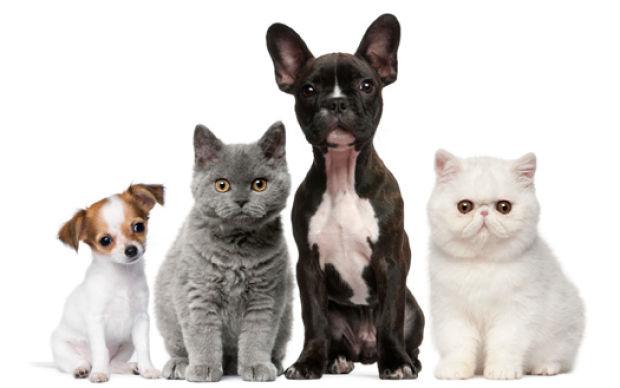
Pet Safety During Severe Weather
Wednesday, March 25, 2015
Veterinary Viewpoints
Spring in Oklahoma often signals the start of severe weather. While you may know what your family will do in the event of a storm, what about your pets?
More and more companion animals are considered members of the immediate family. In some instances, they are the only ‘children’ in the household. Make sure to include your beloved pets in your emergency plan.
“When a tornado is bearing down, it is not the time to start making emergency plans,” says Dr. Elisabeth Giedt, director of Continuing Education, Extension and Community Engagement at OSU’s Center for Veterinary Health Sciences. “While you stock your storm shelter with bottled water, batteries and flashlights, add in the essentials you need to care for your pet should you need to go to a safe place.”
If you do not have a storm shelter and need to leave your home to take cover, it is important to have a plan for your pets. Animals that are left behind in severe weather can be injured or lost.
Here are some items to have assembled in an emergency preparedness kit:
- Pet food
- Water
- Photo of each animal
- Strong lease and muzzle
- Record of current vaccinations, medical history and veterinarian’s contact information
- Proper ID on your pet (collar with ID tags, microchip)
- For birds, cover the cage to minimize stress and to help keep them warm
Remember that not all shelters or hotels are pet friendly. Inquire in your area about facilities that allow pets. Perhaps there is a boarding facility or friends or family that could take in your pets short term.
“The important thing is to know ahead of time where you are going—to have a plan and implement it,” said Giedt.
Pets rely on their owners to take care of them and keep them safe.
“Make sure your family emergency plan includes all your family members—including your pets,” adds Giedt.
Additional Information is available via Oklahoma Cooperative Extension Fact Sheet—Pet Emergency Preparedness.
by Elisabeth J. Giedt, DVM
Veterinary Viewpoints is provided by the faculty of the OSU Veterinary Medical Hospital. Certified by the American Animal Hospital Association, the hospital is open to the public providing routine and specialized care for all species and 24-hour emergency care, 365 days a year.
###
